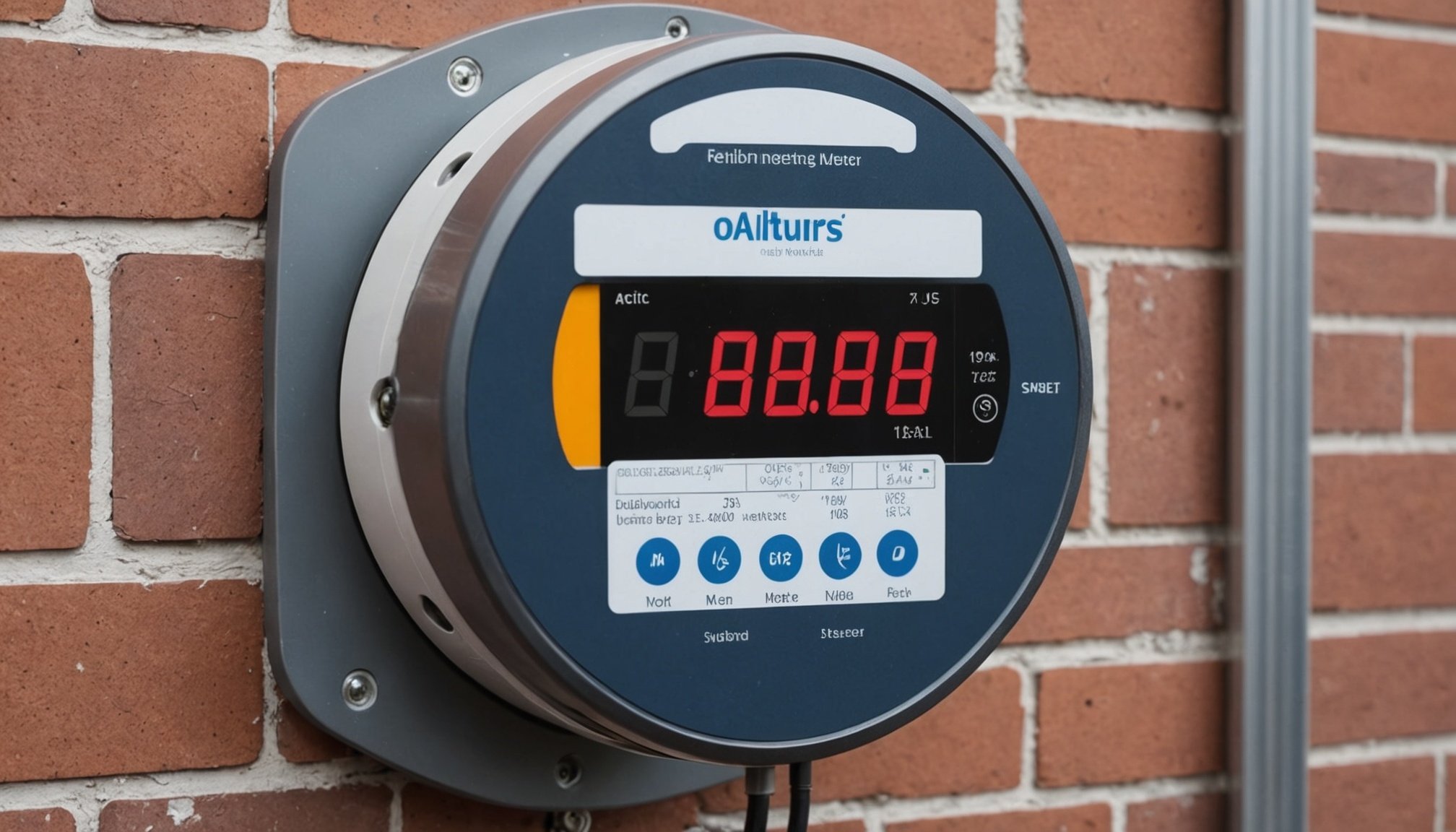Overview of Smart Meter Installation Deadlines
The rollout of smart meters in the UK is a critical move, aiming to modernise energy usage monitoring for both homes and small businesses. For small businesses, understanding the UK regulations surrounding smart meter installation deadlines is crucial. These devices are designed to facilitate more efficient energy consumption, which can lead to cost savings and a reduced carbon footprint.
Officially, the smart meter installation deadlines for small businesses are part of a broader initiative to complete the national rollout by 2025. However, businesses should be alert to specific deadlines imposed by energy suppliers, which might vary based on unique contracts or service regions. Staying informed about these requirements ensures compliance and helps avoid potential issues.
A découvrir également : How to Challenge Your Council Tax Banding in Wales: A Step-by-Step Guide for 2023
Non-compliance with these deadlines may result in several consequences. Energy suppliers might impose penalties or additional charges. Furthermore, businesses missing the deadline could lose access to potential financial savings associated with efficient energy management. Ensuring small businesses compliance with these deadlines is a practical step towards sustainable business operations.
In summary, small businesses should prioritise staying updated on smart meter installation requirements to reap the associated benefits and avoid penalties. Taking proactive steps will also align them with the overarching goal of a smarter, greener energy system.
A découvrir également : Discover the latest farmingdale observer highlights for your home
Compliance Requirements for Small Businesses
Navigating compliance obligations is crucial for small businesses, particularly with respect to smart meter installations. Businesses must first understand the specific regulatory guidelines which dictate these requirements. The UK government has established explicit frameworks to ensure a smooth transition to using this energy management technology.
Detailed Explanation of Compliance Responsibilities
For small businesses, understanding their compliance responsibilities begins with recognising the defined regulatory guidelines for smart meter installations. The UK government mandates adhere to standards safeguarding consumer privacy, data protection, and energy usage transparency. Adherence to these guidelines ensures businesses remain compliant and avoid potential penalties.
Legislation and Guidelines
Specific legislation emphasizes the need for small businesses to stay updated with changes in compliance obligations. The UK government provides continuous updates and resources to assist these businesses in understanding and implementing regulations effectively. This proactive stance ensures that small businesses remain aligned with current compliance standards.
Role of Energy Suppliers
Energy suppliers play a vital role in aiding small businesses with their compliance obligations. They offer support that ranges from installation assistance to compliance advice, ensuring businesses are well-equipped to meet their small business requirements. By working closely with these suppliers, small businesses can mitigate risks associated with non-compliance and harness the full benefits of smart meter technology.
Implications of Delayed Installations
Smart meter installation delays can have significant ramifications, especially for small businesses. When a business fails to meet its installation deadlines, it often faces substantial financial implications. The delay can disrupt operations and increase costs, ultimately impacting profitability.
Delayed installations also pose operational risks. Smart meters are integral to efficient energy management, yet postponing their introduction can result in inaccurate data collection. This can lead to businesses making decisions based on outdated or erroneous information, which may affect operational efficiency. Without timely smart meter installations, companies might struggle to optimise their energy usage, resulting in unnecessary overheads.
Moreover, these delays directly influence energy pricing and billing accuracy. Smart meters offer precise readings, fostering correct billing. On the other hand, without them, estimates often replace precise data, which can cause businesses to overpay for energy. Mismatched energy costs destabilise financial planning, complicating budgetary allocations and future investments.
Timely installation of smart meters thus alleviates these risks, ensuring cost efficiency and operational accuracy. It is crucial for businesses to adhere to their installation schedules to protect their financial interests and avoid unnecessary complications. In summary, smart meter installation delays are far from trivial, as their financial and operational impacts can be substantial.
Smart Meter Installation Process
Navigating the installation process for a smart meter can seem daunting, but with proper guidance, it’s straightforward.
Steps to Prepare for Installation
Before the smart meter setup, ensure your business is ready by following a simple checklist:
- Confirm your eligibility with your energy supplier.
- Verify electrical equipment is up-to-date and safe.
- Schedule the installation at a time that minimally disrupts business operations.
- Inform staff about potential downtimes, so they can plan accordingly.
What to Expect During Installation
The installation process is designed to be efficient. On the day of installation, a technician will arrive, identify themselves, and explain the steps they will undertake. The process involves replacing the old meter with the smart meter, often completed within a couple of hours. While power may be temporarily disconnected, installers aim to minimise interruption.
Post-Installation Requirements
After your smart meter is set up, complete any follow-up actions required for optimal use. Keep a record of any documentation provided by the installer, as it’s essential for reference. Ensure you understand how to read and interpret the new meter, and if any issues arise, contact your energy supplier swiftly for resolution. These steps will smoothly integrate the smart meter into your business operations.
FAQs on Smart Meter Installation for Small Businesses
Frequently asked questions about smart meter installations often revolve around compliance and the specific needs of small businesses. A primary concern is understanding the installation process and how it might disrupt daily operations. Typically, the process is straightforward and quick, ensuring minimal downtime. Many installation queries relate to whether existing infrastructure can support the new technology, and in most cases, smart meters are compatible with current systems.
For businesses, the differences between residential and commercial smart meters need clarification. Unlike residential meters which cater to household energy consumption, business smart meters handle higher loads and provide insights tailored to commercial energy needs, like peak usage patterns and efficiency recommendations.
Small businesses might express concerns about meeting compliance standards with their installations. It is essential to ensure that smart meters are installed by accredited professionals who can guarantee that regulatory requirements are met.
Numerous resources exist for small businesses seeking clarity on smart meter installations. Utilities often provide detailed guides and customer service hotlines specifically for small business concerns. Additionally, government websites and energy consultancies offer expert advice and practical insights to aid in the transition to smarter energy management. This empowerment fosters informed decision-making and smoother installation experiences.
Resources and Further Information
For those looking to understand smart meter information in depth, official government resources are an invaluable starting point. These websites provide comprehensive guidance on regulations and standards applicable to smart meter deployment. Visiting the UK Government website can offer detailed insights into the policies and regulations surrounding smart meters.
Should you require personalised advice, your energy supplier is a key contact. They provide tailored information and support, addressing specific queries you may have. It’s essential to maintain open communication with them to ensure clarity on installation and compliance aspects.
For small business support, organisations such as Business Energy Scotland and other regional support bodies offer resources that assist in making informed decisions about smart meters. Their platforms provide tools and guidance to help small businesses navigate the intricacies of smart meter installation and compliance effectively.
Recommendations for additional resource platforms include:
- Energy Saving Trust: They offer advice on energy efficiency and savings associated with smart meters.
- Small Business Federation: Offers guidance and webinars on integrating new technologies like smart meters.
In summary, your journey to understanding and adopting smart meters can be significantly enriched by engaging with these resources, ensuring you stay compliant and informed.











